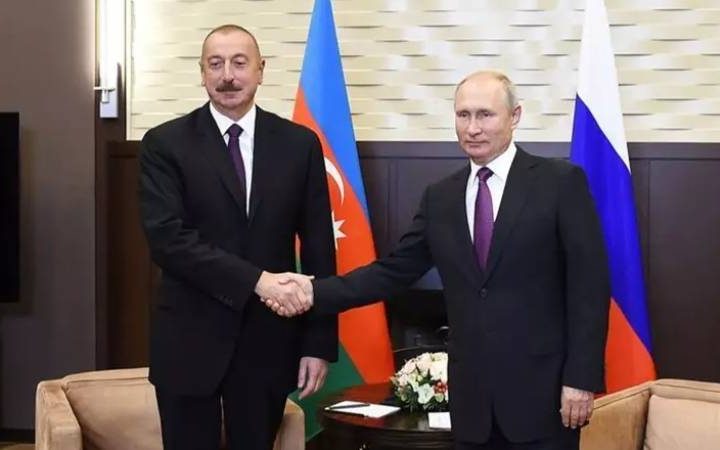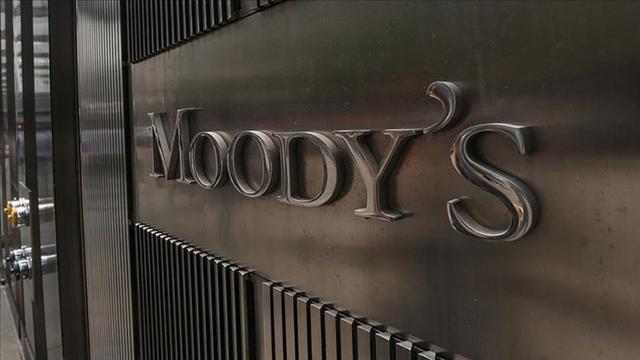Can a European figure really block the efforts of countries on the Continent, especially if it concerns Ukraine?
This seems to be the case in word and deed, especially at a time when the Ukrainian army’s military chances are diminishing against Russian forces on the one hand, and the United States seems reluctant to provide billions of dollars in military aid on the other. As two years ago, prominent European figures such as Josep Borrell warned against Ukraine’s defeat and Russia’s victory.
And who is this European who is going against the general tendency to support Ukraine with a larger sum than Europeans?
In mid-December, Hungarian Prime Minister Viktor Orban blocked European Union (EU) leaders from agreeing on a financial aid package for Ukraine at a Brussels summit. As the Kremlin’s best friend, Orban’s behavior represents a defeat for Ukraine and its supporters.
The particular incident was Orban’s use of his veto power to block ‘the approval of the 50 billion euros in European loans and aid to Ukraine’. Orban said on X: “Summary of the night session: Veto on additional funds for Ukraine and veto on the review of the European multi-annual budget. We will return to this issue next year after the necessary preparations.”
Orban’s position as the Kremlin’s best friend in the EU represents a setback for both Ukraine and its supporters, especially after Ukrainian President Zelensky and his allies continued to exchange congratulations on the success of the European Summit in opening negotiations on Ukraine’s accession to the EU.
So, who is Viktor Orban? Where does Hungary stand? Why does this man seem to be more a friend of Putin than a friend of other European leaders? Are there historical backgrounds for Hungary, especially where Orban’s ideas originate?
Hungary’s son Orban against communism
Orban was born in Szekesfehervar, Hungary in 1963 to a middle-class family. His father was a farmer. However, Orban’s outstanding performance at high school helped him to be nominated to Pembroke College, Oxford.
In March 1988, Orban was one of the founding members of the Fidesz (Union of Young Democrats) party. He was the first official spokesperson of the organization. He and his group also publicly expressed their rejection of popular repression by the Soviet Union.
Orban initially appeared to be a zealous patriot and a courageous leader. As revolution against the Soviet Union brewed in Eastern Europe, Orban gave a speech in Heroes’ Square in the capital Budapest in memory of former Prime Minister Imre Nagy and other martyrs of the 1956 Hungarian Revolution, which the Soviets crushed with tanks.
In his speech, Orban demanded free elections and the withdrawal of Soviet forces. The speech brought him wide national and political acclaim.
After returning from Oxford, Orban quickly entered his country’s parliament and was then appointed leader of the Fidesz parliamentary bloc. He served in this capacity until May 1993.
Viktor Orban became the first president of the Fidesz party in 1993. In the 2010 parliamentary elections, his party won 52.73 percent of the vote, allowing him and his party to change the constitution.
In contrast to traditional secular tendencies, it seemed clear that Orban had traditional European religious roots. As soon as the Hungarian Constitution was amended, he added provisions to the constitution in favor of traditional marriage and electoral reform. He also ordered the number of seats in Parliament to be reduced from 386 to 199. In September 2010, he also ordered the creation of a law enforcement agency as the basis for the fight against terrorism and the establishment of new intelligence agencies. Orban’s victories continued as his party won the parliamentary elections of 2014, 2018 and 2022. It was as if Hungarians had found in Orban what they were looking for to maintain their security and stability amid the turmoil and unrest that had hit Europe with force and violence.
On the revival of the historic Kingdom of Hungary.
Those with a knowledge of history know that the Kingdom of Hungary existed for about 946 years and was considered one of the cultural centers of the Western world.
After 150 years of Ottoman control of Hungary from 1541 to 1699, Hungary was annexed to the Habsburg Empire. A state was then created that included Hungary and Austria. This was known as the Austro-Hungarian Empire. It was one of the world’s superpowers until the end of the First World War. At the end of the war, as part of the Treaty of Trianon, which penalized Hungary for its role in the First World War, Hungary lost 70 percent of its territory and a third of its population of ethnic Hungarians.
Last November, the British newspaper The Times reported that Orban wore a scarf bearing a pre-World War I map of his country, including the annexed territories of Austria, Slovakia, Romania, Croatia and Ukraine.
According to the Treaty of Trianon, signed on June 4, 1920 and entered into force in 1921, it is known that Hungary lost 75 percent of its area compared to the period when it existed within the former Austro-Hungarian empire.
Was Orban’s wearing of the scarf merely a way of cheering for a football team, or was he reviving border disputes and returning to the idea of historical claims to territory once under Hungarian sovereignty?
Of course, the reactions of some neighboring countries, such as Romania, showed real fears that the ideas of the Hungarian right could change at a certain point ‘from the circle of ideological theorizing to practical implementation’. What made this possible was the relationship between Orban and Putin.
Romania was the first country to express deep concern over Orban’s expression through the ‘monster scarf’. The Romanian Foreign Ministry, so to speak, made it clear that it ‘strongly rejects’ Orban’s wearing of the scarf, while Ukraine demanded a formal apology.
In a post on Facebook, the spokesperson of the Ukrainian Foreign Ministry said the following:
“Supporting any revisionist idea of changing the map in Hungary does not contribute to the development of Ukrainian-Hungarian relations and is not consistent with the principles of European policy.”
The scarf incident was not the first time Orban has created tensions by referring to Greater Hungary. In 2020, he published a photograph of a globe showing the borders of the Kingdom of Hungary before the end of the First World War. This photo provoked reactions from countries such as Croatia and Romania.
Will Hungary repeat the UK’s experience?
It seems clear that Hungary is the rebel member at the heart of the EU. On the other hand, the EU widely criticizes the lack of media freedom and restrictions on minority rights on Hungarian soil. But the circumstances show that Hungary’s crisis with the EU is much broader and deeper than that. This has led many political analysts to ask: Can Hungary repeat the British experience of withdrawing from the EU?
According to the Independent Arabia, opinion polls in Hungary show a dramatic shift towards rejecting the idea of continued membership of the EU.
According to the latest Eurobarometer survey, only 29 percent of Hungarians supported the EU this year. Last year this rate was 51 percent.
In parallel with this downturn, Bloomberg published a report referring to the test bubble put forward by the Hungarian government during the coronavirus pandemic. In fact, the Hungarian Finance Minister, while putting forward the idea of Huexit, similar to the UK’s Brexit, stated that EU membership could be reshaped if Hungary becomes a net contributor to the bloc’s budget.
But is Hungary’s crisis with the EU a dogmatic crisis with religious roots or an ideological crisis with purely political features?
There are deep differences with the EU, which is based on liberal secularist tendencies and does not care much about Europe’s religious roots. While Hungary is still proud of its faith and spiritual roots, it is also likely that this is what kept it unshakeable during the years of communist rule. This means that it is replicating the same Orthodox spiritual experience in Russia and has remained an incubator of faith for seven decades, despite the ugliness of communist repression.
But there is actually another dimension. The economic dimension, especially after the Orban government developed the ‘eastward orientation’ policy in order to diversify investments to ensure economic growth.
This policy was particularly appealing to rural voters who did not enjoy the same opportunities as Budapest’s liberal elites in EU membership. The rapprochement with non-Western countries has also strengthened the identity discourse. This identity discourse rejects what Orban and his supporters believe are ‘Western beliefs hostile to conservative Christian values’.
Is Orban Russia’s man in Europe?
Last October, Hungarian Prime Minister Viktor Orban became the first Western leader to meet Russian President Putin since the International Criminal Court charged the Kremlin’s master with war crimes.
The meeting took place on the sidelines of the Belt and Road Forum in Beijing, where Orban told Putin that Hungary never wanted to confront Russia. He also said that Budapest’s goal is ‘always to achieve better mutual communication’.
The meeting sparked widespread criticism of Orban, whose behavior since the invasion of Ukraine has been supportive of Putin in one way or another, ‘in particular by delaying sanctions, refusing to provide military aid to Kiev and opposing Kiev’s accession to the EU’.
The meeting also reinforced the long-standing question: is Orban a Russian at the heart of the EU?
European and American circles accuse Orban of receiving some kind of reward from Putin through additional shipments of Russian gas, especially in light of his repeated calls for peace talks between Moscow and Washington.
In this context, some German newspapers, such as the Frankfurt Zeitung, commented, “When neighboring countries get angry, Budapest feigns surprise and innocence, claiming that this is merely a representation of a past situation and has nothing to do with current politics.”
“The fact that Orban has so far refrained from such provocations is a scandal in itself. Because he is still sympathizing with the war criminal Putin.”

How did Orban react to European anger over his meeting with Putin?
The answer is very interesting. “It is possible to meet with Putin again if the interests of the Hungarian nation require it,” Orban said, according to statements quoted by the Russia-based TASS agency on December 6 and 20. “External opinions, including those coming from Brussels, have no influence on any meeting with the Russian president,” Orban also said.
Orban did not stop there. “The West is afraid to meet the Russian president because of disagreement and opposition. But politics means reality and results,” Orban said. “We should always get together and talk, except for special operations,” Orban said, adding, “We believe that negotiations are the only way out of the Ukrainian crisis.” Does this mean that this man has a hostile orientation towards Ukraine and especially towards President Zelensky?
Ukraine will not win and has no place in the EU
“Does Orban have a historical grudge against Ukraine, as shown by his attitude towards the military conflict with Russia?” said a research analyst who analyzed Viktor Orban’s biography and career.
“It is clear that the military solution is not working,” Orban said at the Qatar Economic Forum last May, emphasizing that the war in Ukraine was the result of the ‘failure of diplomacy’.
“Given the facts, figures, context and the fact that NATO is not ready to send its forces, it is clear that Ukrainians cannot achieve victory on the battlefield,” Orban said.
Orban took an interesting position, saying that he sympathized with them on the basis of their poverty. He also said that he understood the suffering of the Ukrainians and therefore the escalation must stop and move towards peace and negotiations.
It is in fact evasive and reflects a deep desire to support Russia, even if indirectly.
Before Orban’s veto of $50 billion in aid to Ukraine a few days ago, Hungary blocked similar EU aid of 500 million euros last May.
Hungary is also one of the few NATO members to refuse to provide arms to help Ukraine repel the Russian invasion. According to Bloomberg, Orban’s critics say his pressure for the EU to cut EU funding to Kiev is akin to a demand to capitulate to Russian aggression.
Europe’s most hostile attitude towards Ukraine is its rejection of Ukraine’s accession to the EU. This is what he said in his speech to the semi-annual conference of the Civic Union Party at the end of last November.
“Ukraine is light years away from joining the EU,” Orban said. He also said that he and his government would resist planned talks on inviting Ukraine to membership negotiations.
Admitting a new country to the EU requires the unanimous vote of all member states. This gives Orban a strong veto power.
Political Puritanism or economic pragmatism?
This raises doubts about the relationship between Russia and Hungary and between Putin and Orban. But is Orban playing a vital and strategic role in turning the EU in favor of Russia?
It is well known that Moscow does not want Ukraine to join NATO or the EU. This is because Russia sees both organizations as its historical enemies and does not trust their plans to use Ukraine as a cat’s paw.
At the conference, Orban made clear his intention to stand in the way of Ukraine’s accession to the EU, saying: “Our mission will be to correct the false promise to start negotiations with Ukraine, which is light years away from the EU.”
Hungary’s attitude towards Ukraine is almost becoming a position that goes beyond playing with contradictions in order to gain relative advantages or to achieve pragmatic goals. This is evidenced by the fact that the finance ministers of the European bloc agreed to provide Hungary with 920 million of the 10.4 billion euros allocated for economic recovery after the Covid-19 crisis. The European Commission then announced the full release of the funds. This raised concerns among some bloc members about the possibility of the Commission ‘giving in to Orban’s blackmail’. This was because the disbursement of the remaining 9 billion was conditional on reforms to combat corruption and conflicts of interest, promote judicial independence, freedom of expression, academic freedoms, and protect the rights of minorities and migrants. This is not an insignificant amount, especially considering that it represents around 5 percent of Hungary’s overall domestic product and inflation rates in the country have recently fallen below the 10 percent threshold.
Is there another unspecified reason behind Orban’s stance on Ukraine?
Question. Orban is a skilled politician who shows his ideologically and ethnically innocent face. In reality, however, it is feared that Ukraine’s accession to the EU will automatically mean a reduction in European support for the Central European countries, since Ukraine will not enter on its own (Moldova is meant).
Orban also fears that Europe’s eastward enlargement will have repercussions on the Common Agricultural Policy (CAP), which represents the EU’s largest budget at 264 billion euros for the period 2023-2027. The accession of Ukraine, the old continent’s largest agricultural country (41.5 million hectares of arable land), will lead to a redistribution of agricultural support cards for each country.
According to an unofficial European study published by the Financial Times, Ukraine’s accession to the EU would allow Kiev to receive €96.5 billion over a seven-year period under the CAP program.
“If you want this (Ukrainian) agriculture to enter the EU, the European agricultural system will collapse the next day,” Orban told the French magazine Le Point.
Orban and the times of rich and powerful peoples
It is almost impossible to understand Orban’s mindset, which oscillates between racial and religious beliefs on the one hand and financial and economic greed, including his dreams of ‘Hungary’s return to the world of empires’, on the other. Geography and history almost deprive Orban of these desires.
But in reality it seems that this man is focused on two main rules in his life; the first is money, the second is power. These are often inextricably linked.
In a statement on the X platform in late June, Orban said about EU money: “Two years before the seven-year budget, Brussels is running out of money. How did this happen? What happened to the budget? Where is the money?” he asked.
The day after this statement, on July 1 in particular, Orban emphasized that the whole world is going through difficult tests that only the strong can withstand and pass, while the weak will be consumed and destroyed.
Speaking to a crowd of students in Budapest, Orban said:
“Today we live in a time when the whole world is shaken to its foundations. We are no exception in this region, as the epicenter of the earthquake is on our borders, in Ukraine. There is a war going on on Hungary’s borders and tens of thousands, hundreds of thousands of migrants are besieging our borders. That is why our country, our government, our army, our civil organization must be strong. There are times when weak nations die and only the strong survive.”
*This analysis was translated from Independent Arabia by the editors of Fikrikadim.







